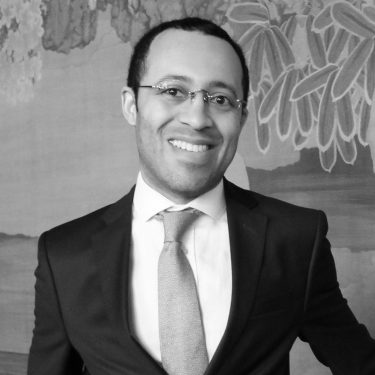The Pandemic Moot Court
Judging Amidst Pre-Existing And New Challenges
The adoption of a virtual format for the Jessup in 2021 was borne out of the necessity of striking a balance between the mobility restrictions imposed to control the pandemic and ensuring the continuance of the competition to the greatest extent possible. As in many other domains of social and economic life disrupted by the pandemic, the turn to virtual platforms has revealed a whole new array of opportunities for teams, administrators, and judges. Of course, it has also posed several challenges and laid bare many inequalities predating the pandemic, on various levels and with varying degrees of severity. The assessment of those challenges and opportunities can be undertaken by reference to two dimensions, namely a temporal one, concerning the time frames shaping the administrators’ goals – short-term or long-term – and a scalar one, having regard to the different levels the competition covers, ranging from the micro-level of a single pleading to the macro-levels of the competition – from national to regional to international rounds.
In the short term, the virtual format has been, in my view, a success. It stroke the right balance between allowing the competition to continue while accounting for the mobility and social-distance restrictions still in place around the world with varying degrees of stringency. Indeed, the virtual format allowed teams to deliver their arguments in a normal manner and judges to pose questions, deliberate and provide feedback. On this note, it is worth discussing some of the micro-level challenges posed by the virtual format, even if they do not outweigh its benefits, evident in light of the prevailing circumstances.
On a micro-level, the challenges which the virtual format poses range from what one could interestingly call, in the now familiar epidemiologic parlance, ‘pre-existing’ challenges, independent of the format, on one hand, and challenges that are inherent to, and do not necessarily predate the virtual format, on the other hand.
Pre-Existing Challenges
Pre-existing challenges are important since they mostly comprise circumstances often driven by inequality factors, which, like many other aspects of social and economic life during the pandemic, have been brought into their sharpest relief by the restrictions linked to the pandemic. These challenges, in turn, may be divided into infrastructural and skills-related challenges.
Infrastructural pre-existing challenges include internet access, adequate basic equipment (i.e., at least a laptop and a headset), and the availability of suitable spaces allowing the teams to deliver presentations meeting minimum standards of professionalism. While judges on the benches in which I participated did their best to assess a team’s performance despite their infrastructural challenges, there were instances in which those challenges would interfere with a team’s performance to a greater extent than it ought to be the case.
Skills-related pre-existing challenges, of course, relate to the basic skills, whether in terms of knowledge of public international law and/or degree of command of English. These typically interfere with a team’s performance, but concern aspects not entirely linked to inequality, unlike lack of access to infrastructure and to financial and other resources.
Perhaps one takeaway from pre-existing challenges is the need for the administrators to intensify their appeals for funding even more, which could address the needs of future teams on this micro-level.
Format-Linked Challenges
Format-linked challenges, on the other hand, could be divided into those which are related to the technical features of the platform employed (Yaatly) and another array of challenges concerning the limitations virtuality imposes on the roles of the various parties involved, whether administrators, teams or judges.
Technical format-linked issues were the exception and remained largely inconsequential. Indeed, Yaatly proved more effective for organising the kind of interaction involved in a moot court than other platforms used by organisers of other similar events in which I have participated during the pandemic. In my experience, except for minor issues with the use of my camera in certain rooms, perhaps due to my own equipment and its configuration, there were no major issues with the platform, and the rounds were conducted without any disruption.
Virtuality-related format challenges imposed limits on the participants’ ability to effectively perform their respective roles. Some rhetorical devices are only available during in-person rounds and others depend on the infrastructural and technical resources available to a team. Many devices cannot be deployed in a virtual format, to the detriment of the team’s argumentative effectiveness. For instance, a team lacking the equipment, space and resources, may not have, for instance, a podium in which a team member may more fully make use of non-verbal language. Furthermore, the lack of a space shared by all participants prevents teams from presenting a collective front (a situation many teams faced, since even teams with access to adequate spaces might have been prevented from appearing as a group by the applicable local pandemic regulations) or, otherwise, interacting through eye contact, with judges. In some cases, virtuality resulted in team members over-relying on their supporting materials, giving the impression that they were reading and not really arguing. These challenges, inherent in the format, are a powerful reason for maintaining a general preference for an in-person format, especially in the long term.
Virtual or Hybrid Formats in the Long Term?
In the long term, a virtual format would fail to substitute for the valuable experience of meeting in person. In-person interaction remains an important aspect of the competition in terms of the skills teams develop and for which they are assessed and, perhaps more importantly, in terms of the friendships and mentorships that can only be forged among all participants when they interact in person. One of the main goals of the competition, and possibly its most appealing one, is to maintain and nurture a world-wide community of present and future international law and dispute resolution professionals. Hence, the place of virtual formats should remain limited to exceptions in the long term, in order to allow for a largely in-person, and, in limited circumstances, hybrid, format.
On a macro-level, the prospects of permanently incorporating, subject to certain conditions, a degree of format hybridity is worthy of discussion, notwithstanding a preference for the in-person format. Indeed, a primarily in-person format that allows for exceptional hybrid solutions could be an interesting option for administrators to consider, insofar as it could integrate some of the newly-found opportunities revealed by the virtual competition held in 2021. Two macro-level aspects could be strengthened if hybrid elements are to be adopted in the long term, alongside the additional levels of competition they allowed to hold in 2021.
More Diversity Through Hybrid Regional and Global Exhibition Rounds
The training of teams could be improved. While rounds at all levels should be held in-person once the pandemic abates, this year’s ‘Regional’ and Global ‘Exhibition’ Rounds offered teams greater exposure to international judges and teams of other countries from their respective regions and globally. Should the Jessup maintain Regional and Global Exhibition Rounds, it would benefit from spaces similar to those currently in place in other worldwide moot competitions, such as the Foreign Direct Investment (FDI) Moot and the Willem C. Vis International Commercial Arbitration (Vis) Moot, both of which offer opportunities prior to the global competition in the form of ‘pre-moots’. The Permanent Court of Arbitration (PCA), for instance, hosts a PCA ‘Vis Pre-Moot’, in which I have participated as a PCA alumnus. The FDI Moot, furthermore, has organised regional rounds in addition to national and global rounds.
The composition of benches, particularly at the global stage of the competition, could be diversified in ways that would benefit the quality of the competition and the assessment of teams. Leaving aside the more advanced stages of the global competition, where preeminent figures of international law (including sitting ICJ judges) serve as judges, one peculiarity of the traditional competition appears to be the fact that a significant number of judges are chosen from among practitioners who do not normally deal with issues of international law. Furthermore, since the Global Rounds are held in Washington DC, the majority of judges are US-based lawyers, typically trained exclusively in US law. These judges are highly qualified and offer valuable perspectives, particularly in terms of the advocacy skills of teams, perhaps the most predominant factor in their assessment of teams. However, it is worth exploring the opportunity of having judges on the bench who come from a more diverse background, including from traditions other than common law, and, more crucially, who engage more frequently with international law, whether as academics, officials of (inter-)governmental organizations or practitioners with subject-matter expertise in the area. Insofar as a significant number of judges in this latter, wider, category of professionals may not be available to travel to Washington DC for the International Rounds, a degree of format hybridity may be instrumental in allowing for their participation in the long term. Teams would certainly benefit from benches where they interact with judges hailing from multiple legal traditions – as they would if they argued before the International Court of Justice, as pointed out elsewhere in this symposium. Furthermore, if judges were more familiar with international law, they could better appreciate the depth of arguments made by teams not as rhetorically strong as the teams normally benefitting from benches that ultimately place greater emphasis on advocacy skills.
To conclude, the pandemic has posed problems which the Jessup administrators successfully solved, allowing this year’s competition to fully come to fruition. Their use of a virtual format has opened up a variety of opportunities which could be explored, in the form of format-hybridity, without prejudice of returning to the in-person format as the only one truly suitable to fully achieve the competition’s long-term goals.

